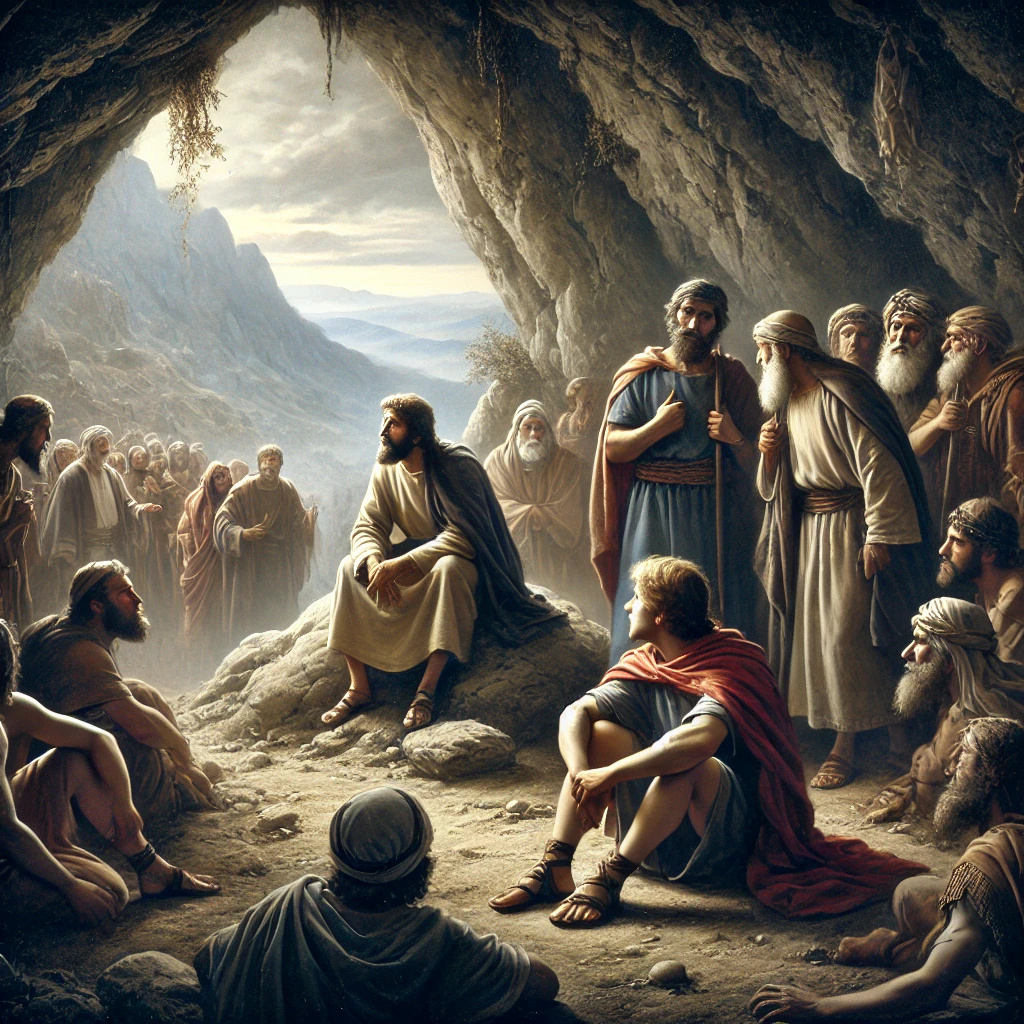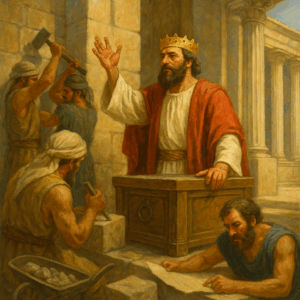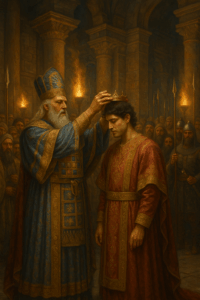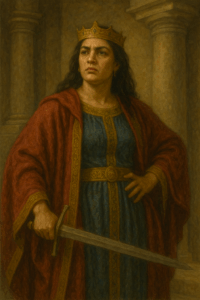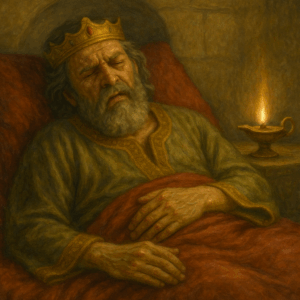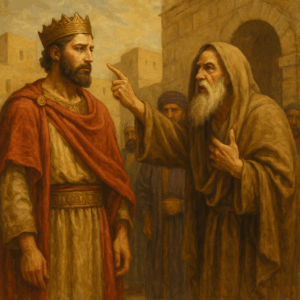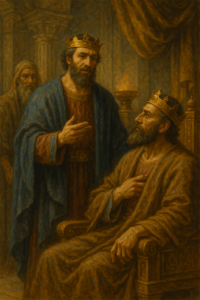Introduction.
1 Samuel Chapter 22 captures a moment in David’s life as he gathers support while hiding from King Saul. The chapter paints a stark contrast between David’s growing band of followers and Saul’s increasing paranoia and violence. It is here that David finds refuge in the cave of Adullam, while Saul, driven by jealousy and rage, orders a tragic massacre. This chapter delves into themes of leadership, loyalty, and the consequences of unchecked power.
David’s refuge in the cave of Adullam.
After fleeing from Saul, David finds refuge in the cave of Adullam. It is there that his family and those in distress, debt, or discontented join him, forming a group of about 400 men. Despite his fugitive status, David begins to take on the role of a leader, providing guidance and hope to those who are struggling. This moment marks the beginning of David’s transformation from a lone fugitive to a leader of men, demonstrating his ability to inspire loyalty even in times of hardship.
David’s time in the cave of Adullam shows how God can bring together people from all walks of life for a greater purpose. It is a reminder that even in times of despair, God can use unlikely circumstances to shape future leaders and build community.
Saul’s anger and the massacre at Nob.
Meanwhile, Saul’s jealousy and paranoia continue to grow. When he learns that David has been seen, he accuses his servants of conspiring against him. Doeg the Edomite, one of Saul’s servants, informs him that he saw Ahimelech the priest give David provisions and Goliath’s sword at Nob. Enraged, Saul orders the execution of Ahimelech and the priests of Nob, resulting in the death of 85 priests and the destruction of the entire town.
This tragic event underscores Saul’s descent into irrationality and cruelty. His actions reveal the dangers of unchecked power and how fear can lead to devastating consequences. The massacre at Nob becomes a turning point in Saul’s pursuit of David, illustrating the depths to which he is willing to go to maintain his power.
Abiathar’s escape and David’s compassion.
Among the survivors of the massacre is Abiathar, the son of Ahimelech, who escapes and seeks refuge with David. When Abiathar informs David of the tragedy, David takes responsibility, acknowledging that his visit to Nob had led to the priests’ death. David offers protection to Abiathar, saying, “Stay with me; don’t be afraid. The man who wants to kill you is trying to kill me too. You will be safe with me.”
David’s response to Abiathar’s plight demonstrates his compassion and sense of responsibility. It also highlights his growing role as a protector and leader, in contrast to Saul’s destructive behavior.
Key lessons from 1 Samuel chapter 22.
- Leadership in adversity: David’s ability to rally those in distress and provide leadership in difficult times shows the qualities of a true leader. Even in a cave, he becomes a beacon of hope for others.
- The dangers of unchecked power: Saul’s actions reveal the destructive consequences of jealousy and paranoia. His willingness to kill innocent priests out of fear serves as a cautionary tale about the abuse of power.
- Compassion and responsibility: David’s care for Abiathar highlights the importance of compassion, even when facing personal challenges. His willingness to take responsibility for his actions shows maturity and empathy.
Conclusion.
1 Samuel Chapter 22 contrasts the rising leadership of David with the tragic downfall of Saul. David’s time in the cave of Adullam becomes a period of growth and preparation, while Saul’s actions reveal the depths of his desperation. As we reflect on this chapter, let us remember the value of compassion, responsible leadership, and the dangers of allowing fear and jealousy to control our actions.
